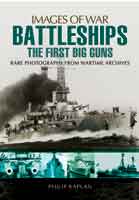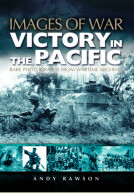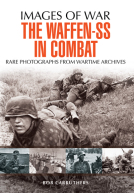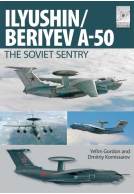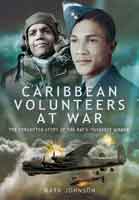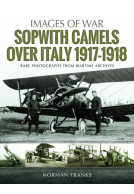US Naval Aviation 1898–1945 (ePub)
The Pioneering Years to the Second World War
Series: Images of War
File Size: 24.0 MB (.epub)
Pages: 224
ISBN: 9781526785404
Published: 15th April 2021
| Other formats available | Price |
|---|---|
| US Naval Aviation 1898–1945 Paperback Add to Basket | £14.99 |
The Japanese attack on Pearl Harbor on 7 December 1941 sank or crippled almost all of the battleships belonging to the US Navy's Pacific Fleet, but the fleet's aircraft carriers survived to demonstrate that naval aviation was now the dominant factor in the struggle at sea, turning the tide of the Pacific War. That the US Navy had the necessary ships, aircraft and crews was the result of pioneering, far-sighted decisions made in the pre-war years. Before the First World War the navy had recognised the potential of aircraft at sea, and it went on to develop the techniques and equipment that contributed so much to the defeat of the Japanese. This is the fascinating story Leo Marriott tells in this photographic history.
In a selection of over 200 rare photographs he traces the growth of US naval aviation from the flimsy seaplanes of the first years of the twentieth century to the mighty armadas that challenged those of the Japanese and, after the carrier battles at Coral Sea and Midway, led the advance across the Pacific. Key aspects of the history are the navy’s first aircraft carriers of the 1920s and the tremendous progress made the decades between the wars in tactics and strategy as well as in the design of ships and aircraft.
As featured in
Air Fan - April - May 2023, No485
As featured by
Cocardes International, April - May 2023 - No26
This book provides a welcome chance to see the aircraft and vessels that, too often, are left only to the imagination. It’s definitely worth having, both to see the evolution of naval aircraft and aircraft carriers and to have at hand while one is reading less-comprehensively illustrated books.
Air & Space Power History
Another volume in this publisher’s “Images of War” series, this book tells its story mainly by means of extensively captioned photographs, the narrative being limited to a short introduction to each chapter. The numerous photographs are, in the main, reproduced sharply and as large as the page size will allow. The cover describes these as being “Rare Photographs from Naval Archives” and, as such, the majority were new to the reviewer.
Paul Hare, Cross and Cockade
The chapters are arranged in more or less chronological order and include such topics as “Pioneers”; “Aircraft Carriers”; “Airships and Flying Boats” as well as the various theatres of war in which the US navy operated.
The author, a former air traffic controller and active private pilot, has written numerous books on aviation, covering a wide range of topics and in this book he traces the history of US naval aviation from its tentative beginnings to the important battles at The Coral Sea and at Midway.
The book is well produced, value, and offers excellent value for money and is recommended to any member with an interest in US naval aviation.
This latest book in the Images of War series from Pen & Sword gives us a fantastic photographic overview of US Naval Aviation, right from it's start in 1898 to the end of the Second World War. Most pages have just one photo with an extensive caption, which allows the images to be reproduced at a nice size. There is even a chapter on the airship's aircraft carriers Akron and Macon and their little Sparrowhawk biplane fighters, which were air launched via a trapeze (I must get hold of the reissued Williams Brothers kit of this aircraft). This is followed by the main subjects of this title as just over half of the book is dedicated to the Second World War in all theatres where the US Navy operated.
SCALE AVIATION MODELLER INTERNATIONAL January 2022
The images in this book, many of which are published for the first time will be invaluable to modellers, showing as they supply details of the aircraft on their carriers, and many show the extensive weathering seen on naval aircraft thanks to their exposure to harsher elements than their land-based equivalents. I was surprised to see just how crowded some of the carrier decks were, and I am sure better modellers than I could create some fantastic dioramas based on the photographs supplied in this new title. As ever, this series and this title are recommended for your home reference library.
This is another splendid book from that prolific writer, Leo Marriott. The sub-title “Rare Photographs from Naval Archives” hardly does justice to the hundreds of superb pictures he has collated, supported by detailed captions and introductions to each chapter. The pre WW1 pictures are particularly interesting, such as Eugene Ely’s take-off from a ship in 1910, “a convincing illustration” of the potential for naval aviation. The interwar carriers USS Saratoga and Lexington are well illustrated, and in an article entitled “Coming of Age” the author describes the rapid evolution of both aircraft carriers and naval aircraft, such as of the first monoplane torpedo bomber, the Douglas Devastator (1947).
Malcolm Smith - Society of Friends of the Flet Air Arm Museum
In “Going to War”, Marriott describes how the US Navy commissioned its newest carrier, USS Wasp – famous for its role in 1942 in ferrying Spitfires to Malta. President Roosevelt ensured the large-scle expansion of the Navy in 1940, enabling new carriers (the Essex class) to be laid down before USA entered the War after the attack on Pearl Harbour. New naval aircraft included the long-lived Douglas Dauntless, also the Wildcat fighter. Many dramatic photographs illustrate crowded carrier decks during the epic battles of the Coral Sea and Midway.
“Hard Times” describes the desparate battles in the south Pacific, starting with the invasion of Guadalcanal and the deployment to the airfield established there by the US Marines of naval aircraft flown in from escort carriers. “Destination Japan” describes the advance across the Pacific and the devastating effect of Kamikaze attacks. This chapter also indicates the huge scale of the expansion of US naval aviation forces. This splendid book closes with illustrations from 1945 of the new Midway class ships, capable of embarking 130 aircraft. “Images of War” is a reasonably-priced softback with an absolute treasure trove of photographs.
"The extra text made this a good volume. Enjoyed it."
The Historical Miniatures Gaming Society
Read the review here
Featured in
HeliData News and Helicopter International
"The photos give a very good impression of the nature of the war, and the text serves to explain it very well."
IPMS/USA
Read the review here
"...a fine inclusion into a popular series..."
ModelingMadness.com
Read the review here
This offering from Pen and Sword as part of their Images of War series, covers a period of US naval aviation prior to the start of World War II, of which I knew little about, and proceeds through World War II and so covering a period I am much more familiar with. The contents are well presented, in a fairly chronological order, as well as the developments of aviation in the US Navy.
Aeroscale
Read the full review here
The book charts a rapid development in various technologies, in both ships and aircraft over the course of WW2, facing a very capable naval opponent in the form of the Imperial Japanese Navy (IJN). It also makes clear the incredible manufacturing capacity of the United States, covering a period where the aircraft carrier came to replace the Battleship as the most powerful vessels afloat. For both naval and aviation enthusiasts and modellers, the detail in here will provide some valuable references as usual.
Military Model Scene, Robin Buckland
Read the full review here
This book basically looks at the growth of the US Navy in the first half of the most devastating century there has been. It primarily follows the aircraft carrier fleet which when seen in quite a few of the photographs look spectacular. But this is really the look at the birth of a navy from the biggest superpower in the world, so we see from the start how they relied upon airships and bi-planes. This book ends in the period of the Second World War as the US are forced to take on Japan and their naval fleet. after the attack on Pearl Harbor that brought the US into the war. The pictures of these ships are always going to look amazing even just going by the sheer size of them. But the number of planes they held are staggering making for another brilliant book. As usual with these Images of Wat books, the pictures are excellent and the supporting text is first-class written by knowledgeable historians. As always a definite recommendation from me.
UK Historian
Read the full review here









